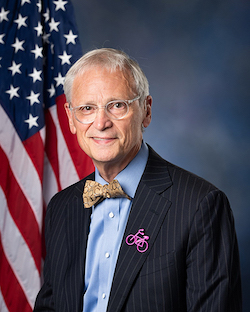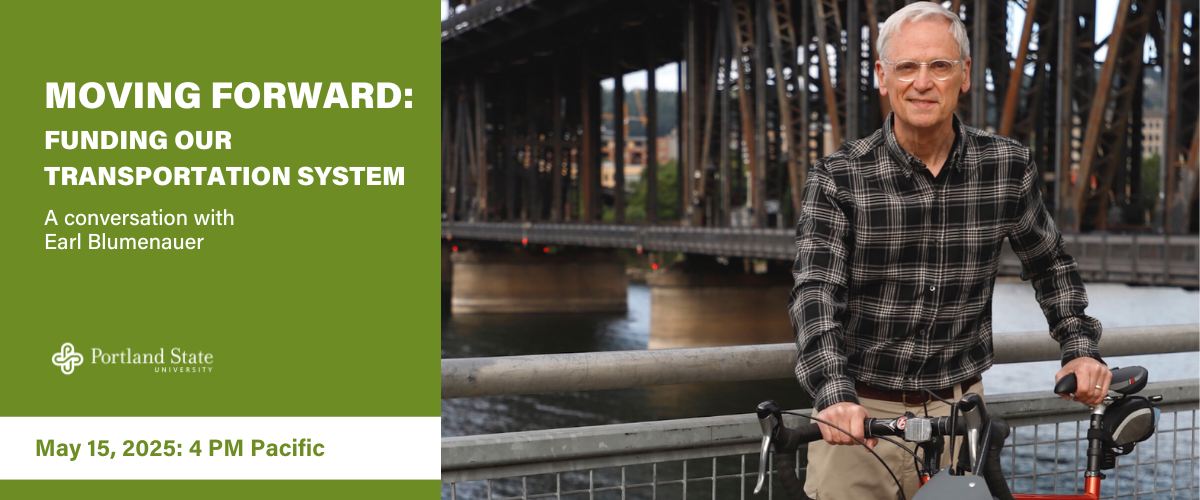PRESENTATION ARCHIVE
OVERVIEW
This presentation reports findings from a cross-sectional survey of older Vietnamese immigrants in the Dallas-Fort Worth, TX metroplex and members of a Hispanic senior center in Hartford, CT. In addition to providing a description of transportation resources and behavior, we present a method for assessing the geospatial "regular activity spaces" of older adults based on the frequency and locations of routine activities. We also present options for assessing the geospatial burden of providing rides to older adults using "ride-provision activity spaces," which entails the frequency and locations of activities for which rides are given. Finally, we discuss the association of transportation-related factors and companionship among members of the senior center in Hartford, CT. Implications for this research include land use policy, assessment for and allocation of public assistance for transportation for older adults, and transportation-related programs to address social isolation.
KEY LEARNING OUTCOMES
After attending this session, attendees will be able to:
- Identify unique transportation-related characteristics and needs of older immigrants;
- Describe transportation-related factors in a sample of older Vietnamese immigrants in Dallas-Fort Worth and older Hispanic migrants/immigrants in Hartford, CT;
- Discuss options for assessing geospatial transportation burden among ride providers of older adults;
- Identify ways in which transportation-related factors have been associated with the social network of older adults in a senior center.
THE RESEARCH
This webinar is based on a study funded by the National Institute for Transportation and Communities (NITC) and conducted at the University of Texas at Arlington. Read more about the research: Using Social Network Analysis To Optimize Access To Culturally Responsive And Affordable Transportation For Older (Im)Migrants.
SPEAKERS
Rebecca Mauldin, University of Texas, Arlington
Rebecca Mauldin, PhD, LMSW, studies social connectedness. She focuses on the social relationships of older adults, the factors that support them forming and maintaining positive relationships, and the ways in which their relationships affect their health, well-being, and access to vital resources and information. In addition, she uses social network analysis to investigate human and organizational networks and their role in contributing to individual and community well-being. In her teaching, Rebecca is passionate about using and developing open educational resources. She serves on the board of Sixty and Better, an aging services organization in Fort Worth, Texas that empowers older adults to live with purpose, independence, and dignity. She earned her doctorate in Social Work from the University of Houston, her Master in Social Work from the University of Houston, and her Bachelor of Arts in Political Science from the University of North Carolina at Chapel Hill.
Stephen Mattingly, University of Texas, Arlington
Dr. Mattingly joined the University of Texas at Arlington (UTA) in September 2002. Prior to joining UTA he served on the faculty at the University of Alaska, Fairbanks (UAF) for two and a half years, and also served as a lecturer at the University of Southern California. While at UAF, Dr. Mattingly helped found the FAA Air Transportation Centers of Excellence Program: Center for General Aviation Research. He teaches undergraduate courses in transportation engineering and transportation planning as well as graduate courses in analytical models in transportation, system evaluation and decision making, transportation network analysis, transportation planning and bicycle and pedestrian facility planning and design.
Rupal Parekh, University of Connecticut
Rupal Parekh, PhD is an Assistant Professor of Social Work at the University of Connecticut. She has over a decade of professional and practice experience working with diverse older adult populations across the continuum of care. Her primary research aim is to improve outcomes for late-life immigrants, with particular attention to the role of the built environment on social isolation. Her research advocates for the development of culturally-grounded assessment tools, evidence-based practices, and national and state legislation to address the needs of older adults at the intersection of social isolation, multiple health issues, and structural and social barriers. Rupal is the Principle Investigator of “Sahanshakti & Mental Well-Being in the Lives of Older Asian Indian Immigrant Women in the United States,” funded by the Okura Mental Health Leadership Foundation Grant and the Council of Social Work Education (CSWE) and “Barriers to Transportation and the Impact on Quality of Life Among Non-English Speaking, Older Asian Indian Immigrant Populations” funded by The National Institute for Transportation and Communities. Dr. Parekh teaches courses in research methods and social policy.
PROFESSIONAL DEVELOPMENT
This 60-minute webinar is eligible for 1 hour of professional development credit for AICP (see our provider summary). We provide an electronic attendance certificate for other types of certification maintenance.
LEARN MORE
Sign up for our newsletter to get updates on our events.
Photo by Whistlestop Carepool, San Rafael, CA; courtesy of National Aging and Disability Transportation Center (NADTC)
This webinar is hosted by the Transportation Research and Education Center (TREC) at Portland State University. The research was funded by the Summit Foundation and the National Institute for Transportation and Communities (NITC), a program of TREC and one of seven U.S. Department of Transportation national university transportation centers. The NITC program is a Portland State-led partnership with the University of Oregon, Oregon Institute of Technology, University of Utah and new partners University of Arizona and University of Texas at Arlington. We pursue our theme — improving mobility of people and goods to build strong communities — through research, education and technology transfer.
 For more than 50 years, Earl Blumenauer has dedicated his career to building livable communities: places where people are safe, healthy, and economically secure. In 1996, Earl was elected to the US House of Representatives. During his 28 years in Congress, he developed a reputation for approaching controversial issues in a way that breaks through gridlock and brings people together around common-sense solutions.
For more than 50 years, Earl Blumenauer has dedicated his career to building livable communities: places where people are safe, healthy, and economically secure. In 1996, Earl was elected to the US House of Representatives. During his 28 years in Congress, he developed a reputation for approaching controversial issues in a way that breaks through gridlock and brings people together around common-sense solutions.



